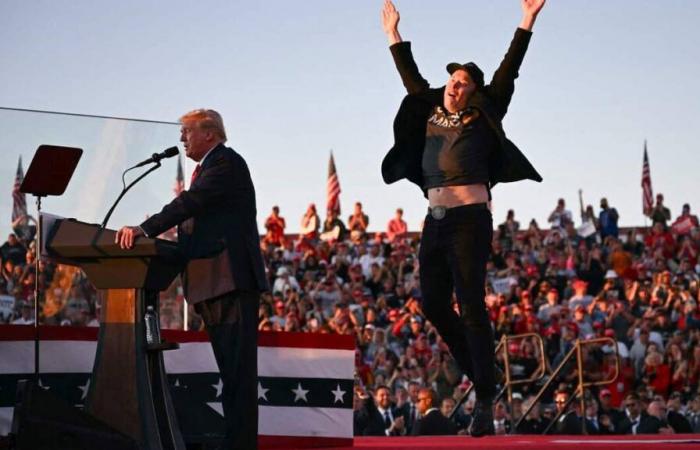Last Wednesday, Donald Trump obtained a second term, then, a few days later, the broadcast of the documentary Alphas by journalist Simon Coutu provoked strong reactions.
Why link them? Because both by analyzing the factors that explain the Republican’s victory (there is much more than that, I know) and by listening to masculinist influencers, we note that they manage to channel rejection and fed up.
At the heart of the frustration of some voters, not all, just like among the followers of masculinist influencers, is a perception of the rejection of the white man.
The weight of history
I have the privilege of being surrounded by researchers, colleagues and students with whom I discuss all subjects openly.
Both by reading about American masculinist influencers and by talking with local men who frequent their channels or their podcasts, I note that many are tired of the image that is reflected to them of the white man.
One of my students recently confided to me, away from prying ears, that since childhood, he has had the impression that the white man is responsible for all the ills that afflict the world. That his story is limited to atrocities, that he is incapable of being anything else.
He feels pressured to be open to all the demands of minority groups without ever being asked what he needs.
What is his reaction to what he considers to be exclusively negative and moralizing speech? A resounding “fuck you!” This is how he turned to Andrew Tate, who skillfully monetizes resentment.
These young men don’t necessarily buy into all the extreme masculinist rhetoric, but I am deeply troubled that they ignore the rampant misogyny.
They will seek out the discourse on financial success, self-confidence and the cult of physical fitness.
We cannot afford to ignore them
As a history teacher, I am well aware of what Westerners are rightly criticized for. We need to say it, explain it and raise awareness. That doesn’t stop me from worrying that we may be wrong in how we do it.
I denounce certain speeches by Trump (convicted sexual assaulter) and those of masculinists, but they attract millions of people. If many do not adhere to the entire message, others get lost in an unhealthy spiral.
By wishing to help minorities, a noble and necessary action, is it possible that we have forgotten many of our young men? If they have to examine their conscience, can we absolve ourselves of all responsibilities?
Change does not come at zero cost, but can its negative impacts be mitigated?
I am coming to the end of a long career in higher education and after worrying about our young women, our homosexual students as well as our trans students, it is now our young men who concern me.
I can reject or condemn their reactions, but I believe we need to ask them where they are coming from.






